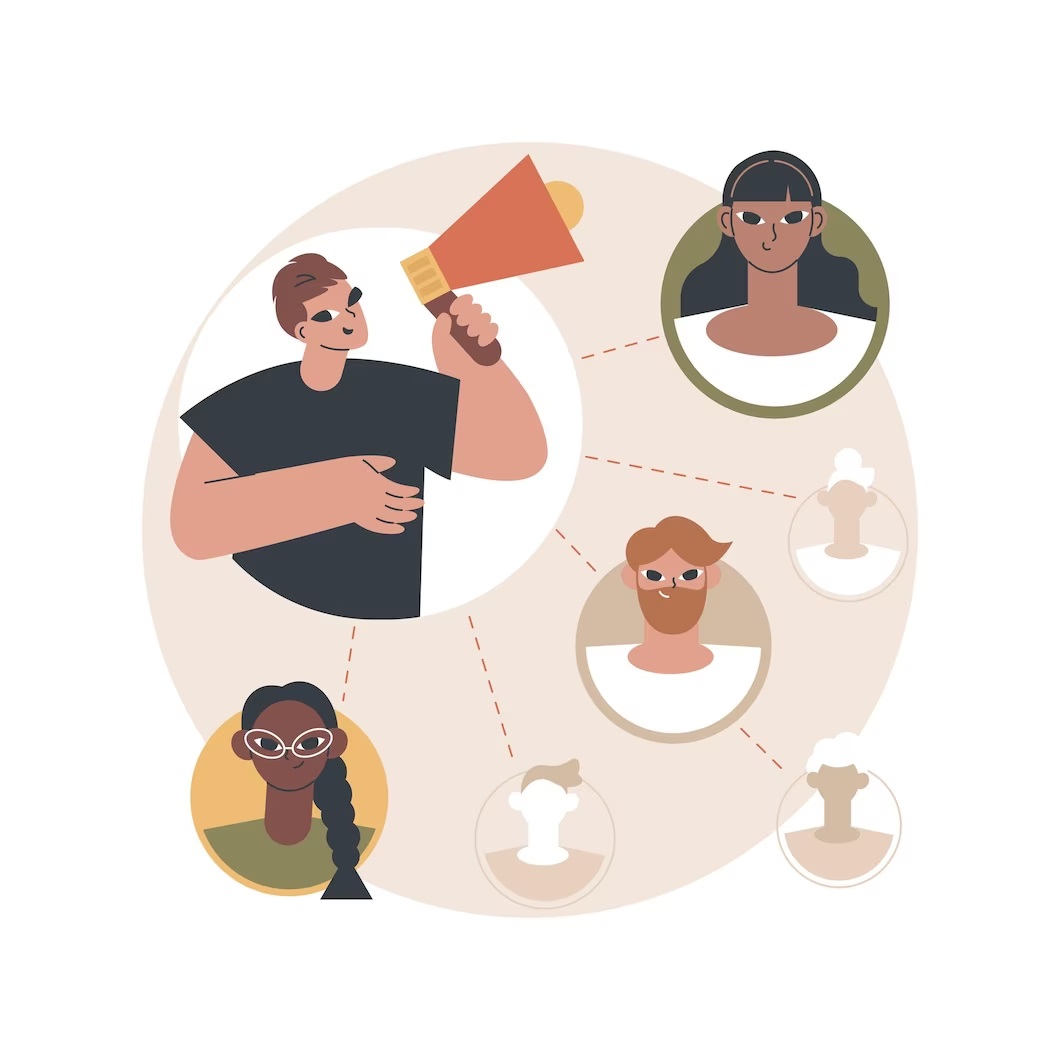Overcoming the Fear of Rejection with Assertiveness
Overcoming the Fear of Rejection with Assertiveness
Rejection is a natural part of life. Whether it's in our personal or professional relationships, at some point, we are bound to experience rejection. However, the fear of rejection can be paralyzing, preventing us from taking risks and pursuing our goals. The key to overcoming this fear is to develop assertiveness, which involves speaking up for ourselves and standing up for our needs and desires. By doing so, we can approach rejection with confidence and resilience and learn from our experiences.
Assertiveness is especially important when facing rejection because it helps us maintain a positive sense of self-worth. When we are assertive, we communicate to ourselves and others that we are worthy of respect and that we value ourselves. This can be a powerful tool in overcoming the fear of rejection because it reduces our vulnerability to negative feedback. Instead of taking rejection personally, we can view it as an opportunity to grow and learn. By being assertive, we can express our feelings, ask for what we want, and learn to receive feedback with openness and curiosity.
Developing assertiveness is a process that requires practice and self-reflection. It involves learning to recognize our needs and desires and finding appropriate ways to communicate them. It also requires us to be willing to take risks and face rejection. However, with time and effort, we can become more assertive and better equipped to handle rejection. By developing self-awareness, setting boundaries, and communicating with clarity and openness, we can overcome the fear of rejection and achieve our goals with confidence and resilience.
Know the Reality and Purpose of Rejection
Rejection is a common and unavoidable phenomenon in human life. Whether it’s a failure to land a job, get into a relationship, or achieve any desired goal, rejection can be a painful experience for anyone. However, it’s important to understand that rejection is not always bad. Sometimes rejection can help us to grow, learn and become better versions of ourselves. When we experience rejection, it’s an opportunity to examine our own behaviors and correct our mistakes.
Rejection can also have a purpose, as it can help us to find better opportunities. When one door closes, another one always opens. The key is to keep moving forward and not let the rejection stop us from pursuing our goals. It’s important to understand that rejection is not a reflection of our self-worth but rather a part of the process of self-discovery. By accepting rejection, we can become stronger and more resilient.
Finally, it’s important to understand that rejection is a natural and common experience. Everyone experiences it. It’s important to not take it personally and dwell too much on it. We need to learn from our rejections and move on. In fact, people who are successful are those who are not afraid of rejection and are willing to take risks. They see rejection as a stepping stone to success instead of a failure. Knowing the reality and purpose of rejection is crucial in living a fulfilling life and achieving our dreams.
Understand the Power of Saying 'No'
Saying 'no' can be one of the most powerful tools in your arsenal, both in your personal and professional life. It can help you set boundaries, avoid burnout, and stay true to your values. When you say 'no' to something, you're saying 'yes' to something else - whether that's time with loved ones, pursuing a passion project, or simply taking a break. By being intentional with your 'no's', you're taking control of your life and prioritizing what truly matters to you.
However, saying 'no' can also be incredibly challenging. It can be uncomfortable to turn down opportunities or disappoint others. It's important to remember that saying 'no' doesn't make you selfish or uncaring - it simply means you're prioritizing your own wellbeing and staying true to your values. When you're faced with a request or opportunity, take a moment to consider whether it aligns with your goals and values. If it doesn't, it's okay to say 'no' respectfully and kindly. Others may not always understand or agree, but that's not your responsibility. Your responsibility is to yourself and your own wellbeing.
It's also important to note that saying 'no' doesn't have to be a negative experience. By framing it in a positive light and offering an alternative, you can create a win-win situation for both parties. For example, if you're asked to take on a project you don't have the bandwidth for, you could say something like, 'I appreciate the opportunity, but I'm currently focusing on X project. However, I know that Y colleague would be a great fit for this and I'd be happy to introduce you.' By offering a solution, you're showing that you're still invested in the success of the project and the person making the request. This kind of approach can help build goodwill and strengthen relationships over time.
Building Self-Respect
Building self-respect is an essential aspect of personal growth and development. It is the ability to value yourself, recognize your worth, and treat yourself with kindness and compassion. Self-respect allows you to set healthy boundaries, make decisions that align with your values, and take care of your emotional and physical well-being. Building self-respect requires a willingness to acknowledge your strengths and weaknesses, accept yourself as you are, and celebrate your achievements. By developing self-respect, you can cultivate a positive self-image and improve your relationships with others.
One of the key ways to build self-respect is to practice self-care. This includes taking care of your physical health through exercise, healthy eating habits, and getting enough rest. Self-care also means prioritizing your emotional needs, such as taking time for hobbies or activities that bring you joy, and seeking support when you need it. When you prioritize self-care, you send a message to yourself that you are important, deserving of care and attention, and that your well-being matters. This can help improve your self-esteem and overall sense of self-respect.
Another way to build self-respect is to set boundaries and learn to say no. This means being clear about your values, priorities, and limitations, and communicating them to others. When you say no to something that doesn't align with your values or boundaries, you are respecting yourself and your needs. It can be challenging to say no at first, especially if you're used to putting others' needs before your own. However, by setting boundaries and saying no when necessary, you can build healthy relationships based on mutual respect and understanding. Over time, you'll feel more confident in your ability to prioritize your needs and make choices that align with your values.
Aim to Clarify the Situation
The world has been struck by a deadly pandemic that disrupted daily life as we knew it. Governments and health officials all over the world have been struggling to contain the spread of the virus and find a solution to the problem. The outbreak of the virus has caused widespread alarm and panic, leading to the implementation of strict measures such as social distancing and the wearing of masks.
Despite the efforts of governments and health officials, the situation seems to be getting worse with an increasing number of countries reporting new cases and deaths. The situation has also caused the global economy to come to a standstill with businesses, and livelihoods affected. The mental health of people has also been affected, with many individuals experiencing fear, anxiety, and depression.
The situation has also highlighted the importance of scientific research and collaboration between countries. Medical professionals, researchers, and scientists from all over the world have committed themselves to finding a solution to the pandemic. It has also pushed for the implementation of health protocols and measures to ensure the safety of human lives. Despite the difficulties, the world has shown resilience and solidarity in the fight against the virus, giving hope that eventually, a solution will be found, and the world will regain normalcy.
Stop Guess-Working and Unsolicited Advice Giving
Have you ever found yourself in a situation where you felt like you had all the answers to someone else's problem? Perhaps a friend or family member has come to you with an issue they're facing, and you think you know the perfect solution. While it's understandable to want to help others, it's essential to recognize that unsolicited advice-giving can do more harm than good. Instead of guess-working and assuming you know what's best for them, take the time to listen and understand their perspective.
One of the biggest issues with guess-working is that it often comes from a place of ego. We want to be seen as knowledgeable and helpful, even if it means overlooking the unique circumstances of the person we're trying to assist. In many cases, what works for one person won't work for another. Each individual has their own set of experiences, feelings, and needs that must be taken into account. By guess-working, we risk overlooking these vital factors and ultimately sabotaging our efforts to help.
So, what can we do instead of guess-working and unsolicited advice-giving? Learn to listen actively. Instead of interrupting or assuming you know what someone is going to say, give them your undivided attention. Ask open-ended questions to gain a deeper understanding of their situation, and validate their feelings. By taking the time to listen and empathize, you'll be better equipped to offer meaningful support that truly addresses their specific needs.
Adopting a Win-Win Attitude
Adopting a win-win attitude is choosing to prioritize mutual benefits in interactions with others. When we approach a situation with this mindset, we focus on finding solutions that benefit all parties involved, rather than seeking to gain at the expense of others. This approach allows us to build stronger relationships, earn the respect of others, and create a more positive and collaborative environment.
By fostering a win-win attitude, we can avoid unproductive conflicts and instead engage in constructive discussions that generate creative solutions. When we seek mutual benefits, we are more likely to find solutions that are acceptable to everyone, which can lead to greater harmony and cooperation. Additionally, this approach enables us to build trust and credibility with others, as they know we are committed to achieving outcomes that benefit all parties involved.
It is important to note that a win-win attitude does not mean always conceding to others or neglecting our own needs. Rather, it means being willing to find solutions that benefit all parties while also upholding our own values and priorities. By approaching interactions with this mindset, we can create positive outcomes that benefit everyone involved, and build stronger and more productive relationships in every aspect of our lives.
Learn to Communicate with Respect
Healthy communication is a vital skill that every person must master. To communicate effectively, you must learn to communicate with respect. Respectful communication means that you listen to the other person and prioritize their thoughts and feelings. Communication is a two-way process, and you must be conscious of how you interact with others. Speak from an empathetic perspective when communicating with others. Ask questions to understand their point of view and be open to feedback. Most importantly, learn to control your emotions and avoid attacking the other person. Respectful communication fosters healthy relationships and positive outcomes.
Body language is an essential aspect of respectful communication. Nonverbal cues such as eye contact, tone of voice, and posture can convey more meaning than actual words. Pay attention to your body language when communicating with others, and ensure that you maintain a positive and approachable demeanor. Additionally, learn to be attentive when listening to others. Active listening involves giving your undivided attention to the speaker and demonstrating that you understand their point of view. Ask clarifying questions and summarize your understanding of what was said. When done correctly, active listening promotes mutual respect and trust in relationships.
Finally, it is essential to maintain a positive attitude when communicating with others. Positivity is contagious and can contribute to creating a welcoming and safe atmosphere. It would be best if you learned to focus on solutions rather than problems when communicating with others. Avoid complaining or criticizing the other person and focus on creating solutions that benefit both parties. Additionally, understand that everyone has a right to their opinion and values. Respectful communication, therefore, means that you accept others' beliefs without judgment, even if they differ from your own. By following these guidelines, you can master respectful communication and create healthy and thriving relationships in your personal and professional life.
Treat Rejection as a Sign of Growth
When we hear the word "rejection," our first reaction is often to feel hurt and disappointed. However, rejection doesn't have to be a negative experience. In fact, it can be a sign of growth.
Facing rejection can teach us valuable lessons about ourselves and help us develop resilience. We can learn to let go of situations and people that aren't right for us and focus our energy on what does work. By taking rejection as an opportunity to learn and improve, we can turn what initially felt like a setback into a stepping stone towards future success.
It's important to remember that rejection is a natural part of life. Every successful person has faced rejection at some point in their journey. The key is to not let it define us. Instead, we can use rejection as a catalyst for growth and continue to pursue our goals with determination and positivity.
Respect Your Boundaries
Respecting boundaries is essential for healthy relationships. It means recognizing and honoring the limits someone sets for themselves and not pushing them beyond what they are comfortable with. This includes physical, emotional, and mental boundaries. By respecting someone's boundaries, we show them that we value their autonomy and that we want to create a safe and trusting relationship. It also allows for open communication and establishes mutual trust and respect.
When we fail to respect someone's boundaries, we risk damaging the relationship and causing harm to the other person. Not respecting boundaries can lead to emotional distress, resentment, and even trauma in some cases. It can also create a dynamic of imbalance and power where one person is not able to assert their boundaries and the other person takes advantage of that. It's crucial to recognize when we are not respecting boundaries and to take steps to correct our behavior, apologize, and take responsibility for our actions.
Lastly, setting and respecting personal boundaries is crucial for our own well-being. It means identifying our own limits and communicating them to others. It's a way of taking care of ourselves and not allowing others to violate our boundaries. It allows us to feel empowered, secure, and in control of our lives. By respecting our own boundaries, we set an example for others on how to treat and respect us. It's never too late to start setting boundaries and advocating for our own well-being.
Practice Reframing Failure
Failure is often seen as something negative and to be avoided at all costs, but reframing failure can lead to a more positive and productive mindset. Instead of viewing failure as a dead-end, it can be seen as an opportunity for growth and learning. By viewing failure in this way, it becomes less daunting and more empowering to take on challenges and push oneself to new heights.
One way to practice reframing failure is to shift one's focus from the outcome to the process. Instead of fixating on the end result, focus on the steps taken to achieve it. By redirecting attention to the journey rather than the destination, failures along the way become a natural part of the process. This perspective allows for a more realistic and accepting view of failure, recognizing that it is often a necessary step towards success.
Another way to reframe failure is to view it as an opportunity for experimentation and innovation. By embracing the unknown and trying new things, failures become stepping stones towards finding what does work. This mindset allows for a more creative and exploratory approach to problem-solving, rather than relying on tried and true methods. Reframing failure as a chance to innovate opens up new avenues of inquiry and promotes a growth mindset that embraces challenges as opportunities for growth.
Stay Open to Constructive Criticism
Receiving feedback is an integral part of personal and professional growth. While it's easy to feel defensive when someone critiques your work or behavior, it's important to remain open to constructive criticism. Not only does it provide an opportunity for improvement, but it also demonstrates a willingness to learn and grow. When receiving feedback, try to be humble and objective. Don't take criticism personally, and instead try to find the value in what's being said.
It's essential to practice active listening during feedback sessions. This involves paying attention to what's being said, clarifying any confusion, and asking questions for further understanding. It's also vital to practice empathy and attempt to see the situation from the other person's perspective. Remember that criticism isn't about attacking you as a person but is information being given to help you improve. By actively listening and approaching feedback with a willingness to learn, you can make the most of the constructive criticism you receive.
Finally, it's important to use feedback to make positive changes. It can be tempting to dismiss criticism or feel discouraged, but try to adopt a growth mindset. Identify areas where you can improve and come up with a plan to do so. Whether it's changing your approach to a project or taking courses to learn a new skill, using feedback to make positive changes can help propel you forward both personally and professionally. Stay open to constructive criticism and use it as a tool for growth and self-improvement.
Maintain the Right Perspective and Attitude
Maintaining the right perspective and attitude can play a significant role in achieving success and happiness in life. Having a positive outlook, even in tough situations, can make all the difference. It's essential to take a step back and look at the broader picture, rather than getting bogged down by the details. An open mind and the ability to see things from different perspectives can help one overcome obstacles and find solutions to problems.
Another crucial aspect of maintaining the right perspective and attitude is to focus on what is within one's control. There are numerous external factors that can impact our lives, but it's essential to understand that some things are beyond our control. Instead of dwelling on these factors, it's better to focus on the things that we can control, such as our thoughts, emotions, and actions. This mindset can help us approach challenges with a sense of purpose and determination.
Finally, it's essential to practice gratitude and appreciation for the good things in life. Often we get so caught up in chasing our goals that we forget to take a moment to appreciate what we have already accomplished. Maintaining a grateful attitude can help us stay positive and motivated, even during tough times. Additionally, expressing gratitude towards others can go a long way in building strong relationships and fostering a support system that can be instrumental in achieving success and happiness.
Be Open to Change for Improvements
Change is inevitable in every aspect of life, including business. Being open to change is a vital factor in achieving continuous improvement. Organizations that resist change and persist with the current ways of doing things end up being left behind. On the other hand, those that embrace change and adapt to new ways of doing things are able to stay relevant and competitive.
To be open to change, businesses need to have a growth mindset. They need to view challenges and setbacks as opportunities to learn and improve. A growth mindset enables businesses to embrace change, take risks, experiment, and learn from their failures. It helps them stay open-minded, innovative, and motivated, even in the face of uncertainty and change.
To achieve continuous improvement, businesses need to implement a systematic and structured approach to change management. This involves setting clear goals and objectives, identifying areas that need improvement, developing and implementing action plans, and monitoring progress. Effective change management also involves involving stakeholders, communicating changes clearly and transparently, and providing adequate resources and support to those affected by the changes. By following a structured approach to change management, businesses can minimize disruption and ensure that changes are implemented smoothly and successfully.



